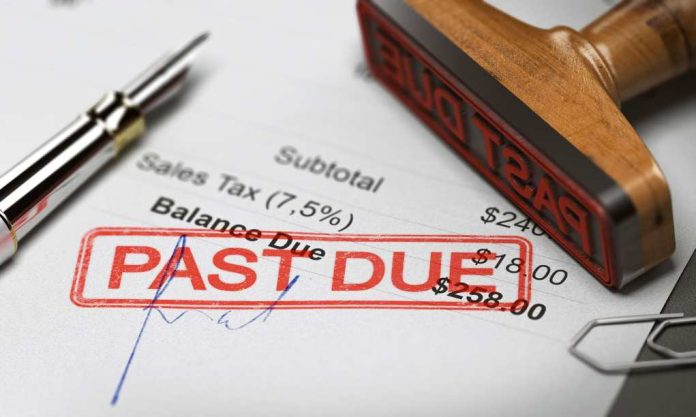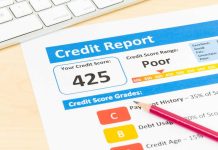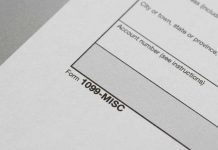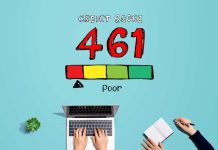
Being financially responsible is hard for a lot of Americans. That is why it is not uncommon for people to have debt that gets sent to collections. The panic and stress that sets in when a debt collector calls can be a lot to deal with. Once your debt is in collections, it can mean some bad news for your finances. People lose hope in these situations but that doesn’t need to be the case! You may be able to get rid of collections from your credit report and not even realize it.
What Does it Mean to Have Debts in Collection?
First, let’s start with the basics. You need to understand what it means when your debts go to collection. When this happens, generally it means that the original creditor decided to send the debt owed to a third-party agency to collect it. All kinds of debts can be sent to collections like mortgages, auto loans, credit card debt, student loans, etc.
A majority of lenders first try to collect the debt themselves. Debt collections are usually a last resort for these companies. That means debts that are sent to collections are usually between 120 to 180 days late.
What is a Debt Collection Agency and How Do They Work?
There are two different types of collection agencies:
- Hired Collection Agencies
- Collection Agencies Buying Debt
Regardless of the type of collection agency, you will see a negative impact on your credit score. However, understanding the difference can help you handle this situation with more confidence!
Hired Collection Agencies
One type of debt collection agency are ones that are hired by creditors to collect debts that are at least 2 months (60 days) past due. These agencies get a cut from the amount of debt that was due if you paid the collection. For example, if you owe a debt of $1,000 and the creditor sends your debt to a debt collection agency, they may be able to get $250 to $450 while the creditor would get the rest.
Collection Agencies Buying Debt
If it’s not a hired collection agency, then it is a debt buyer collection agency. Instead of getting hired by the creditor, these agencies buy the debt from the original creditor. Usually these agencies will buy debts in bulk from a similar type of account. These can have a huge profit margin for the agency due to generally how little it costs to buy debt from a creditor.
If this type of collection agency buys your debts then the original creditor is pretty much out of the picture. Once the original creditor is out of the picture, this can provide more flexibility for how the borrower can repay the debt.
What is the Fair Debt Collection Practices Act (FDCPA)?
The FDCPA was created as a way to protect consumers during the debt collection process. The Federal Trade Commission (FTC) makes sure that these agencies follow the rules of this act. Under the FDCPA some consumer protections include:
- Limited Call Hours
- Upfront Communication
- No Harassment
- Limited Communication
- Written Notices
- Protection from Unfair Practices
Limited Call Hours
Debt collection agencies cannot try to get in touch with you during inconvenient times like before 8 A.M. or after 9 P.M. Another example of an inconvenient time would be when you are at work. They cannot call during that time if you let them know that you are unable to be contacted within that time frame.
Upfront Communication
Debt collection agencies are limited in the tactics that they can use when trying to collect debt. They are not allowed to pretend to be someone else when they contact you. This limits them from fronting like they are a government agency, attorney, credit reporting agency, etc.
No Harassment
It is illegal to harass a consumer regardless of how much debt they owe. Debt collection agencies are not allowed to harass, threaten, or deceit. This means they are limited in how they are able to communicate and legally cannot use profanity, threaten with violence, call repeatedly, etc.
Limited Communication
Besides the fact that debt collection agencies cannot harass the borrower, there are also other limitations in place. These agencies cannot discuss your debt with others. While they are allowed to contact people you know, there are limitations around what they can talk about. Your debt cannot be discussed with others besides your attorney, your spouse, and yourself. Generally they are also limited from contacting third parties more than once to try to access your information like address, other phone numbers, etc.
Written Notices
It is a legal obligation that debt collection agencies must send a written “validation notice” that details important information. This information will include how much you owe within 5 days of the first point of contact, the name of the creditor, and how to proceed if you don’t feel like you owe money.
Unfair Practices
Debt collection agencies are limited in their actual collection as well. They are unable to collect additional monies like fees, interest, extra unnecessary charges, etc. There may be extra charges that the borrower is responsible for within local legality (which varies by state). Other unfair practices that are prohibited include illegitimate dating, taking property illegally, contacting you by postcard, etc.
How Do Debt Collections Impact Your Credit Score?
Your credit score depends on your credit report. Since credit bureaus are the ones that review your report, the impact will vary by bureau. Generally there are different categories of late payments from 30 days late, 60 days late, 120 days late, etc. A good rule of thumb is the later the debt then the more of a negative impact will be on your credit report.
Once your debt is in collections this means that the original creditor has given up trying to get the debt back on their own. Either they hired a debt collection agency or they sold it to one. This means you can see a huge drop to your credit score. It’s also important to note that having multiple debts in collection can be bad news for your credit as well. One debt in collection is better than five.
Payment history is an important factor in your credit score. In fact, it makes up roughly 35% of it (depending on the scoring model you look at). That means that these collection accounts will have a big impact on your credit score. That is why many people frantically try to fix the issue quickly. Luckily, without removing a debt collection, the impact to your credit score will decrease over time. However, they still stay on your credit report for seven years until they eventually fall off.
Should You Pay Off Debt in Collections?
Now that you know you have debt in collections, should you pay it off? Well that depends on your current financial situation and goals. Since credit reporting bureaus have their own scoring model, it may be worth paying off debts in collections. That’s because some credit bureau scoring models ignore zero balance debts that are in collection. In these cases, a paid collection account can still be helpful! However, that’s not necessarily the case depending on the credit reporting agency.
How to Remove Collections From Your Credit Report?
Now that you better understand what it means to have a debt in collections, you can figure out how to handle it. Even though there are countless credit bureaus, the three important ones to consider in terms of your debt in collections are Experian, Transunion, and Equifax. You will want to review your credit report for any debts that are in collections. You can get your free credit report from AnnualCreditReport.com. If you are able to successfully get your debt collection removed from your credit report, you will see that negative impact on your credit score removed as well.
There are a variety of courses of action that you can take if you want to remove debt collections from your credit report. You can:
- Dispute the Claim Yourself
- Request a Goodwill Deletion
- Get Help from a Credit Repair Company
- Just Wait
Dispute the Claim Yourself
This free course of action may be what you need to handle your debt in collections. If you believe that the negative mark on your credit report is an error, then you can dispute the information directly with the credit bureaus. You have this right thanks to the Fair Credit Reporting Act (FCRA) which makes credit reporting agencies verify the information on your credit report.
Once you submit your dispute, the credit bureau has 30 days to investigate the issue. If the collection account is found to be inaccurate then it will be removed from your credit report. However, if it is still accurate, then it will still stay on the report for the normal amount of time of seven years.
Request a Goodwill Deletion
If you want to request a goodwill deletion, you will need to have paid the collection account off first. Once you paid the collection account, you can ask the debt collector to remove the collection. To properly do this you should send a goodwill deletion letter that explains why the debt was unpaid, ask for forgiveness, show the payment history of the debt in question, and how your overall payment history has gotten better.
When you submit a goodwill deletion letter, there isn’t a guarantee that the collection will be removed from your credit report. However, the worst case scenario is that it stays on there so it wouldn’t hurt to try.
Get Help from a Credit Repair Company
Credit repair companies are designed to handle the dispute process for you. Instead of having to review your credit report, and submit a dispute based on inaccuracies yourself, this company will do it for you. These services don’t come free, and they don’t do anything that a person cannot do themselves. However, they advertise that their expertise and experience can make a world of difference and that is why they feel they are worth the cost. Keep in mind, there is no guarantee that a credit repair company can successfully remove the collection account. Again, they are just disputing it.
Just Wait
If you are unable to get a goodwill deletion, and you can’t dispute the claim, then you will be left just waiting. Debts that are sent to collections are on your credit report for seven years. If all else fails, you will be stuck waiting for that long. Even though these collections negatively impact your credit score, the impact will fade over time until it eventually falls off.
Commonly Asked Questions
Handling your collection account can be stressful. That is why many other borrowers have had questions when they have been in a similar situation. You are not the first person to deal with this and you definitely won’t be the last!
Can You Get Rid of Collections from Your Credit Report Without Paying?
Yes! Let’s look at an example. Let’s say that you owed $1,200 to a creditor but the debt went to collections. Once you see this collection account on your credit report, you can begin the dispute process. Even if the collection account is legit, if the credit bureau doesn’t properly investigate, the negative mark may get removed. Nothing is guaranteed, but it is possible!
How to Tell if a Debt Collector is Legit?
Debt collection agencies need to follow strict laws around their debt collection methods thanks to the FDCPA. That is why there are some telltale signs of a debt collection scam that you can lookout for. If you spot any of these signs, you are likely dealing with some sort of scam:
- They Harass You
- Not Your Collection Account
- You Didn’t Get Mail
They Harass You
Illegitimate debt collection agencies may try to use threats, scare tactics, emotional manipulation, etc., to make you pay up. However under the FDCPA they are not allowed to do any of these things!
Not Your Collection Account
If you don’t recognize the collection account that the debt collection company is trying to get, then it may not be legit. That is why it is important to review your credit report so that you stay ahead of the collection agency and can be fully aware of the situation at hand.
You Didn’t Get Mail
The FDCPA requires borrowers to receive a mailed notice of their debt if it has gone to collections. If the debt collection agency is trying to collect money from you, and you haven’t received a letter, then you may be dealing with a scammer.
What If a Debt Collector Contacts You After You Paid the Collection Account?
If you paid the collection account but still get contacted by a debt collection agency, then you are likely dealing with a scammer. That is why reviewing your credit report is so important! People also assume that if they paid the collection account after it’s been sent to collections that the negative mark will be gone from their credit score. That’s not the case. Credit bureaus may use their own scoring models so how it will be reported varies. Unfortunately, even if you paid the collection, you may still see a negative impact on your credit score.
Overall
Dealing with debt in collections can be stressful. Luckily, there are protections that help borrowers who are in this situation. It is important to know your rights under the Fair Debt Collection Practices Act (FDCPA) because this is one of the most important protections you have. Make sure that when dealing with your debt, you take your time to find which would be best for your situation.
You may be able to get rid of this negative mark from your credit report if you file a dispute, send a goodwill deletion letter, or get help from a credit repair agency. If all else fails, you will just need to wait. Even if you paid the collection amount (after the debt was already sent to collections) you may still see a negative mark on your credit score. A collection account will be on your credit report for seven years until they fall off. Don’t stress, this situation may be more manageable than you realize.
Article References
https://www.creditkarma.com/advice/i/accounts-in-collections
https://bettercreditblog.org/collection-agencies/
https://www.myfico.com/credit-education/credit-scores/payment-history
https://www.annualcreditreport.com/index.action
https://www.forbes.com/advisor/credit-score/how-to-remove-collections-from-credit-report/
https://www.bankrate.com/personal-finance/debt/how-to-know-if-a-debt-collector-is-a-scam/




























